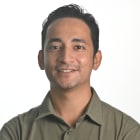Expanding Singapore’s diplomatic space a ‘fulfilling’ role for President Halimah Yacob, as final state visit concludes
The four-day visit to Qatar was Madam Halimah Yacob’s last as Singapore’s head of state, after she announced last month that she will not be running in the upcoming presidential election this year.
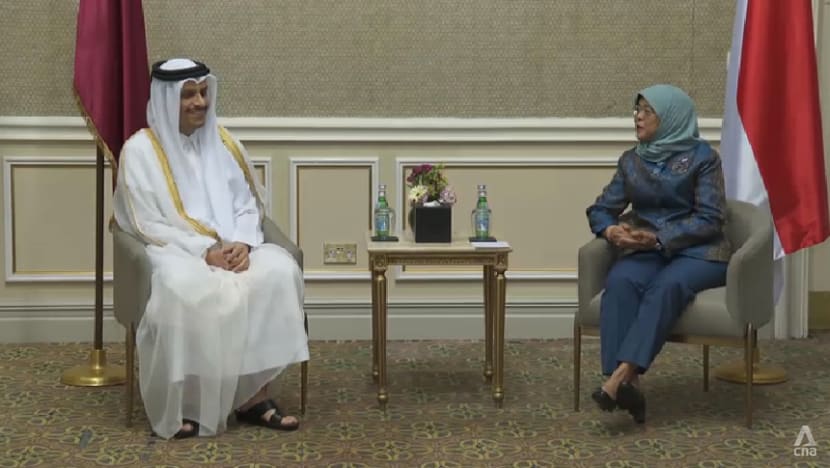
President Halimah Yacob meeting with Qatari Emir Sheikh Tamim Hamad Al Thani on her four-day state visit.
DOHA, Qatar: Meeting Singaporeans based abroad and expanding Singapore's diplomatic space on state visits, has been a “fulfilling” part of her term, President Halimah Yacob said on Thursday (Jun 22) at the end of her trip to Qatar.
The four-day state visit was her last as Singapore’s head of state, after she announced last month that she will not be running for a second term in the upcoming election this year.
"As you know, I have different parts of the presidency. One is my constitutional work that I have to do. Second is the part where I deal with appointments. And the third is of course, the ceremonial part. This covers a lot under the ceremonial part,” she told reporters.
“But I think in most cases, what I have done is go beyond the ceremony, but also ensure that the visits that I conduct also result in some very positive important economic outcomes for our country, and for Singaporeans."
The president also emphasised that Singapore has “a brand name” on the global stage, which helps the growth of its businesses and economy.
On her visit, she met with Qatari Emir Sheikh Tamim Hamad Al Thani and witnessed the signing of several memoranda of understanding (MOUs) in the areas of capacity building, liquefied natural gas and low-carbon technology, food security, cybersecurity, and innovation.
Noting the “extremely warm” relations between the two countries, Madam Halimah said the emir fondly remembers his state visit to Singapore in 2017, while Singaporeans recall him attending the funeral of founding Prime Minister Lee Kuan Yew in 2015.
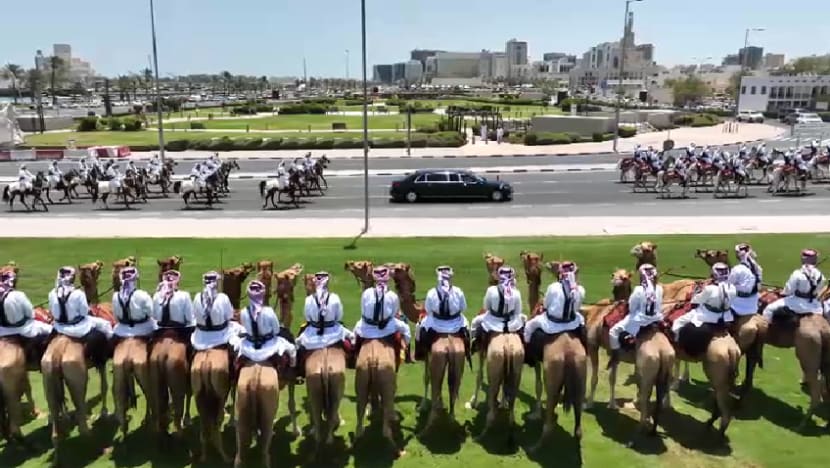
“He said that in the context of his own country, which is a small country, he realises small countries do have a need to support each other (and) cooperate with each other, and I think it’s really a starting point in our relationship,” she said.
“We are both small countries and we need to cooperate and work together, particularly in upholding the multilateral system, the global trading system (and) rules-based trading system. That's very important, because that's where small countries participate and benefit from trade and investments.”
Madam Halimah also met with over 250 Singaporeans at a reception, where she urged them to remain connected with their country and loved ones back home.
ENRICHING EXPERIENCE
Madam Halimah said she will miss the chance to interact with world leaders and with Singaporeans based in different parts of the world, as she steps down from her role.
She said it has been “a tremendous journey” going on 12 state visits in total and also meeting with heads of states and senior leaders of other countries when they came to Singapore.
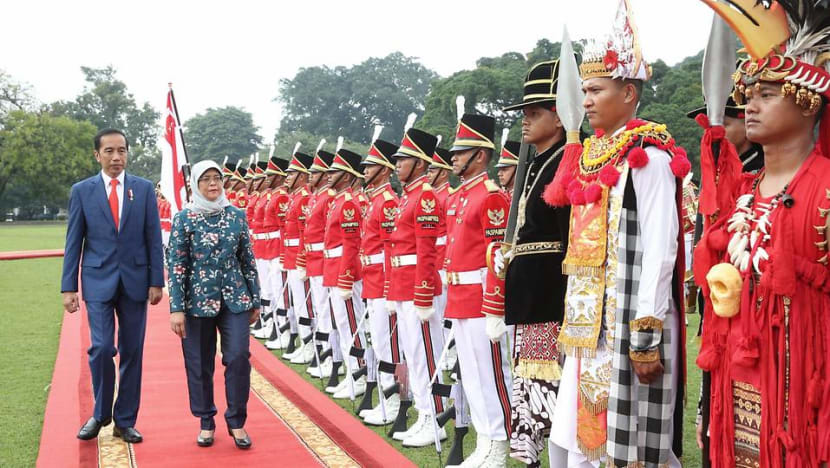
“I learned a lot also from them, as much as they feel that they've benefited from the interactions and engagements with us. There is a certain thirst for engagements for knowledge of experience of sharing, which is very, very important,” she said.
She added that each visit has its own memories that she would not forget.
“Obviously, it has made me a much richer person, the diversity of experiences, the depth of it all. There's nothing that beats face-to-face interaction and that has been very enriching for me,” she said.
“It has also been good for Singapore because I do my best also to expand the diplomatic space for Singapore, and secondly, to see how we can benefit by expanding economic opportunities.”
Madam Halimah noted that in all her visits, she realised that “Singapore has a brand name, a very important brand name”.
The Singaporean identity is associated with being highly skilled, and coming from a background where people are disciplined and hardworking, she said. Foreign businesses also find an element of trust when entering into agreements with Singaporean counterparts.
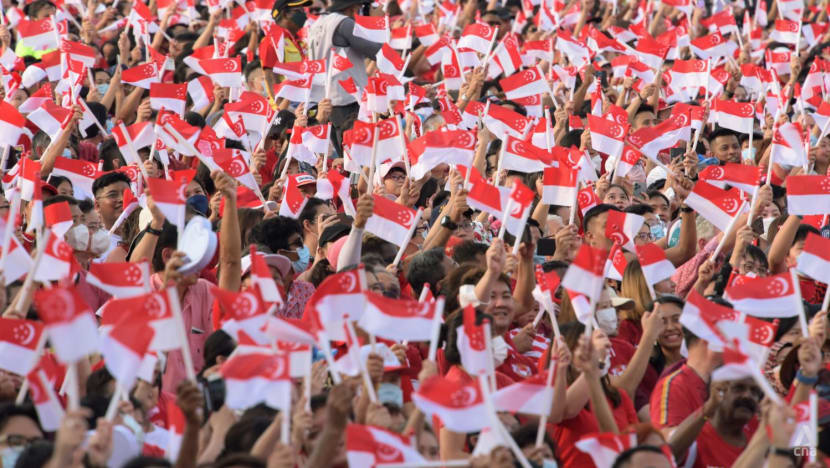
“That is a very important brand that we have and it really helps our businesses as well,” she noted.
SMALL STATES
Her visit to Qatar also highlighted the significant point that small states need to work together to secure their interests on the world stage, so they can support their domestic populations.
She noted Qatar’s efforts to diversify its energy sources, despite having abundant gas supply.
“Although they have a huge gas supply, they're on the path of diversification because they know it's not going to last forever. They need to be able to prepare themselves in the eventuality of course, many years down the road, where they need to look at other sources of revenues,” said Madam Halimah.
“The same with Singapore too, the support we give to our domestic population is important in different areas, you know, whether it is education, health, housing, it's important.”
She also spoke about Qatar’s hosting of last year’s FIFA World Cup, where they had to build everything from scratch, as the first Middle Eastern country to host the event.
“They don't have that memory or the experience, but they were able to galvanise the resources and bring the expertise and stage a world class match,” she said of her visit to the Lusail Stadium, where the final of the tournament was held.
Noting the ongoing geopolitical tensions and challenges around the world, President Halimah said it is important for small countries to have their voices heard internationally.
Just like Qatar, Singapore has been actively taking part in economic-related agreements and also in international forums, as it seeks to expand its diplomatic space.
“The basic reason is that diplomacy is important for us to be able to protect our national interests,” she said.
DIVERSIFICATION FOR SECURITY
She said Singapore has an interest in ensuring greater energy security, and is also looking to strengthen its collaboration with Qatar on that front.
The Qataris “went through a period of significant upheaval, both regionally and internationally”, but were able to overcome that, particularly in the area of food security, she said.
“Whether it's food security or energy security, the principles apply in the sense that we need to diversify to make sure that we get enough sources from which we can source these needs to fulfill our economy,” said Madam Halimah.
She noted that from 2017 until recently, the country suffered a dramatic decline in dairy products, and also had to import 95 per cent of its food products.
However, it now has enough dairy products, even beyond its domestic needs, which it can export.
She said Singapore can learn from the Qatari experience, as it aims to produce 30 per cent of its own food by 2030.
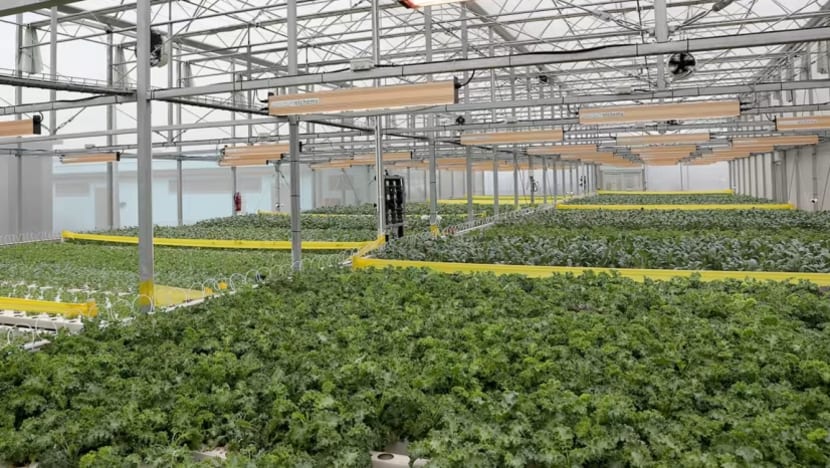
The MOU on liquefied natural gas and low-carbon technology, meanwhile, will help Singapore’s energy security, said Madam Halimah, pointing out that 95 per cent of the city’s power generation comes from gas.
“Gas is a very critical component for us. This MOU will not only facilitate greater energy security, but also carbon capture and storage,” said Madam Halimah.
Editor's note: This article has been updated to amend the number of state visits the President has been on.








